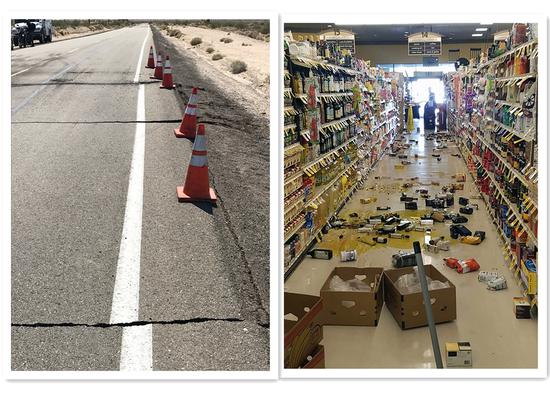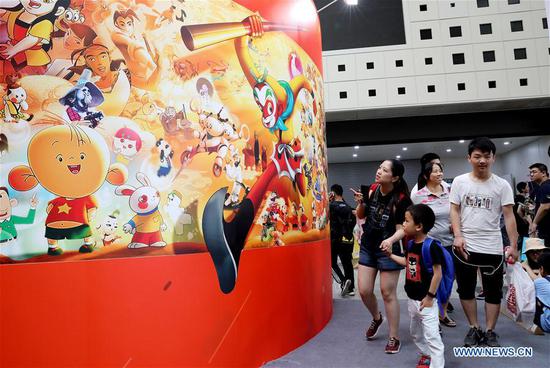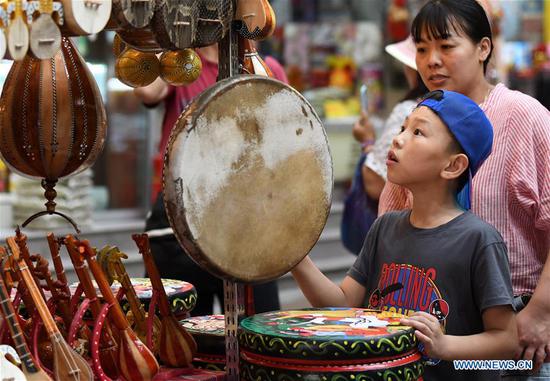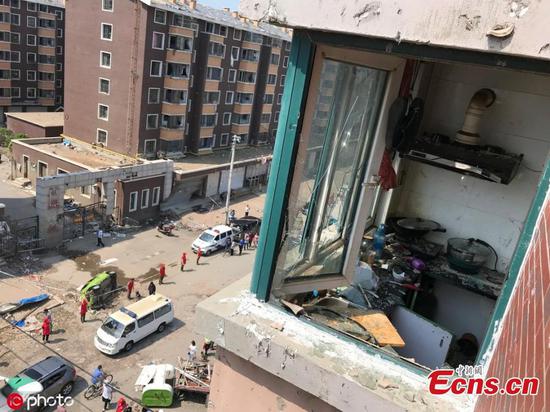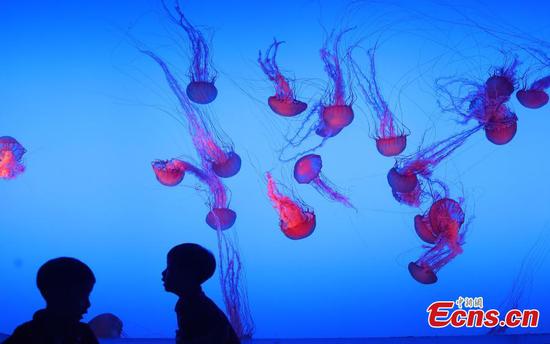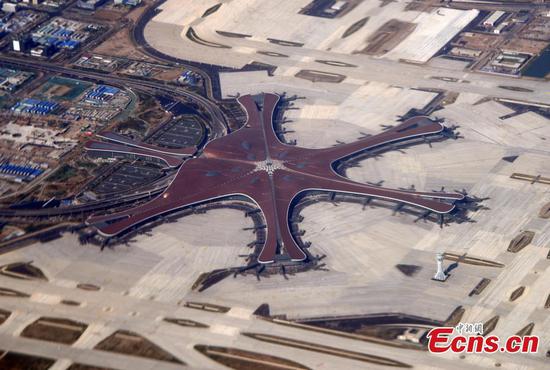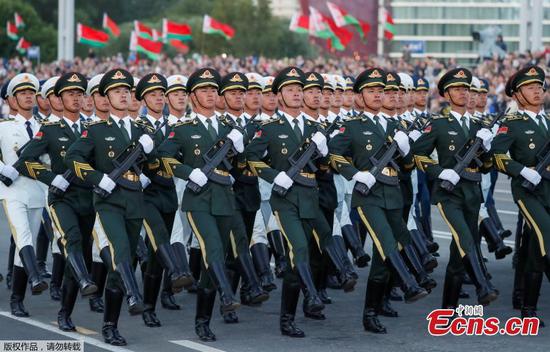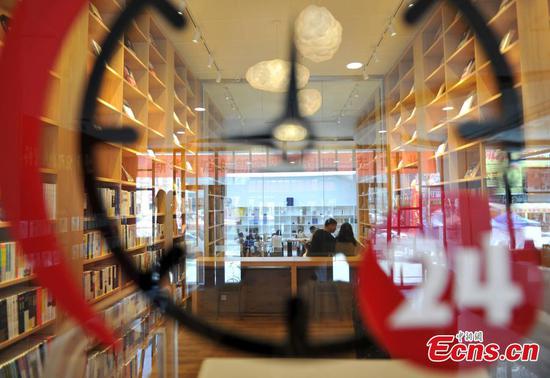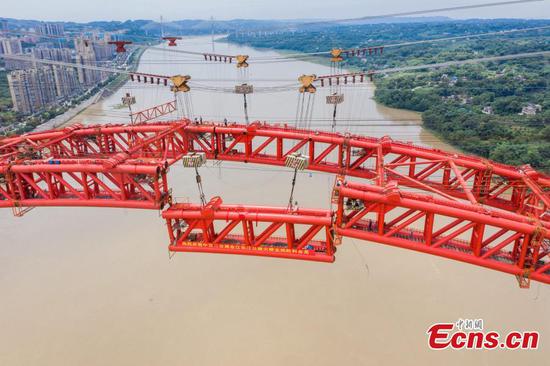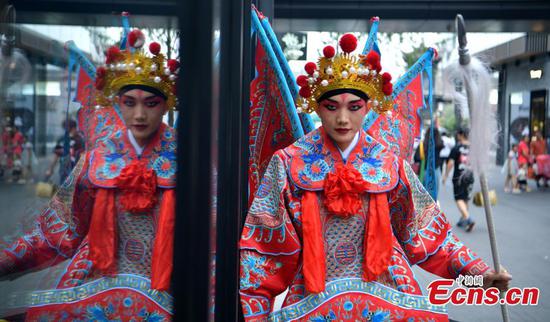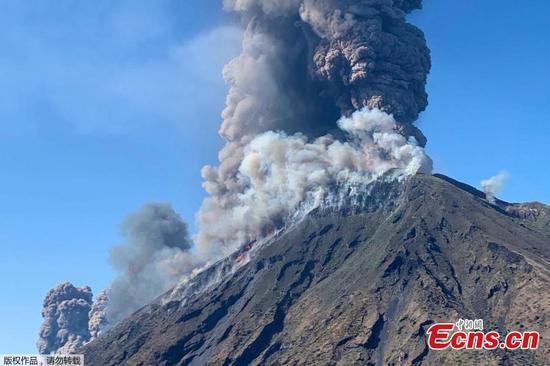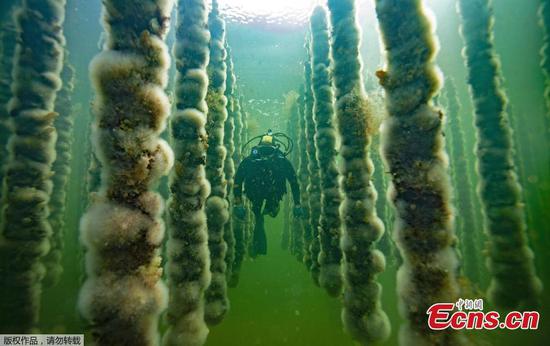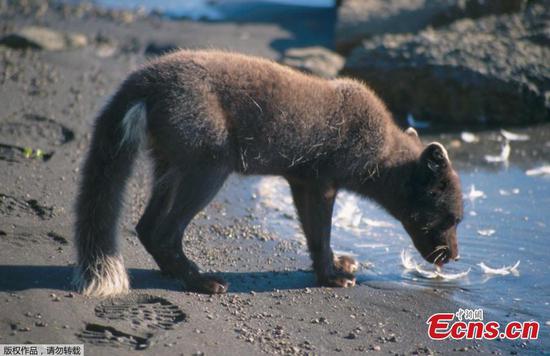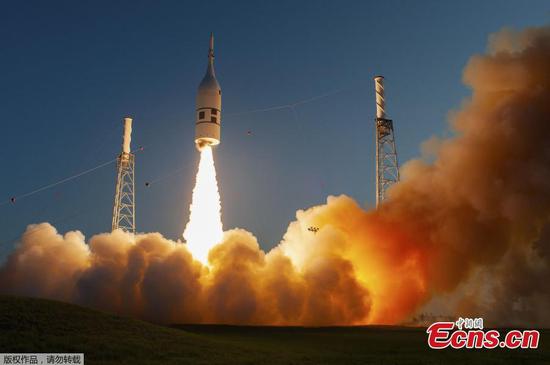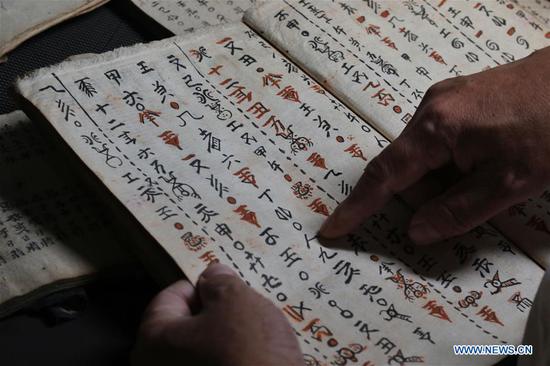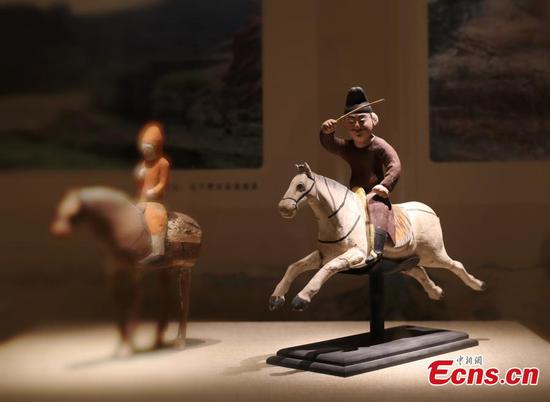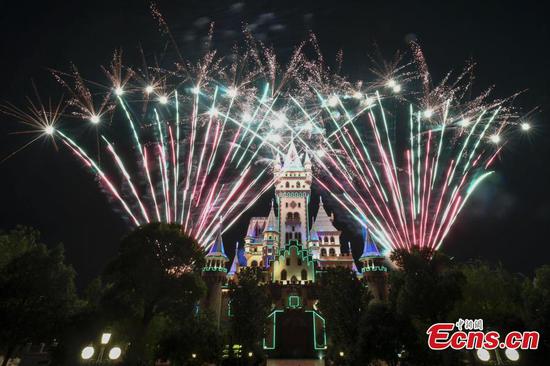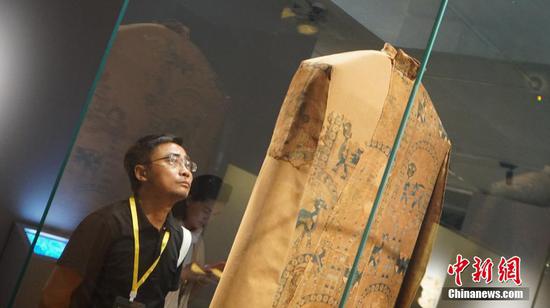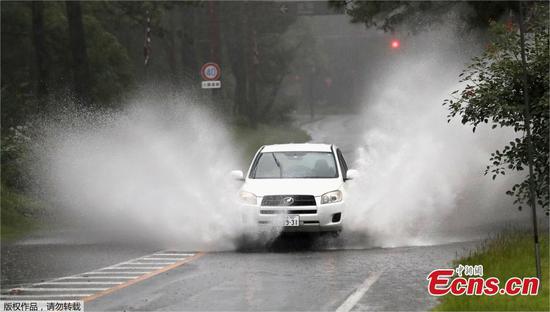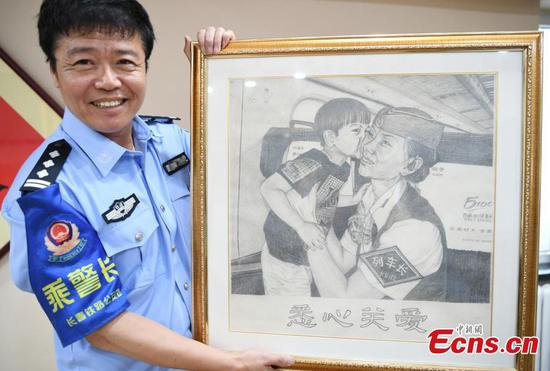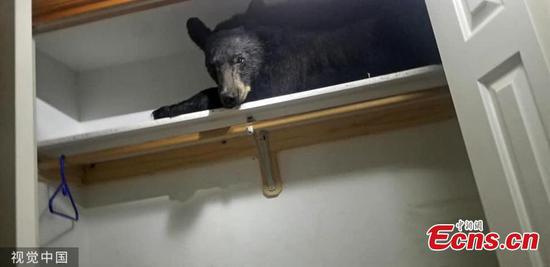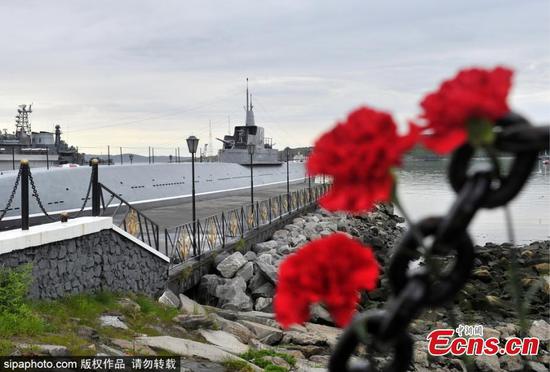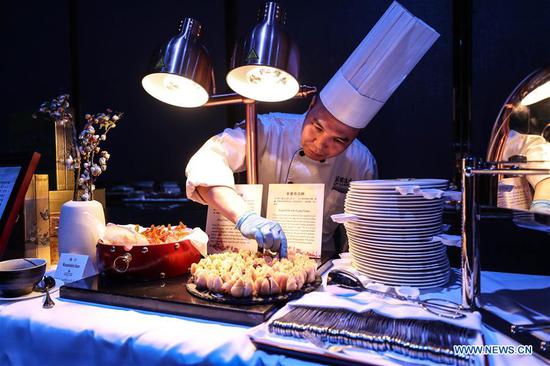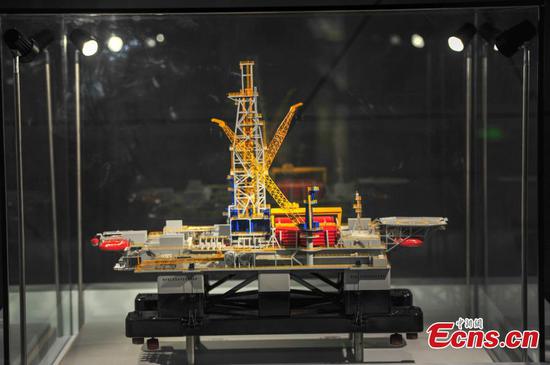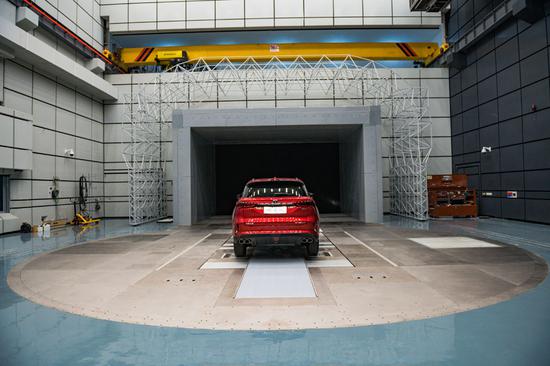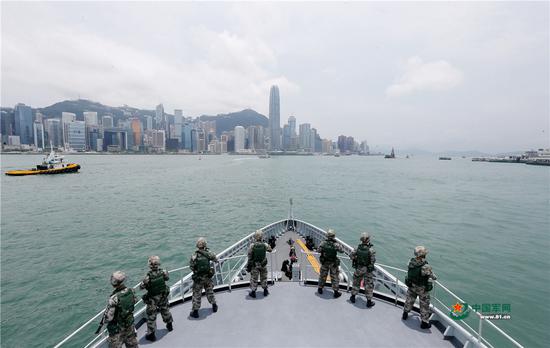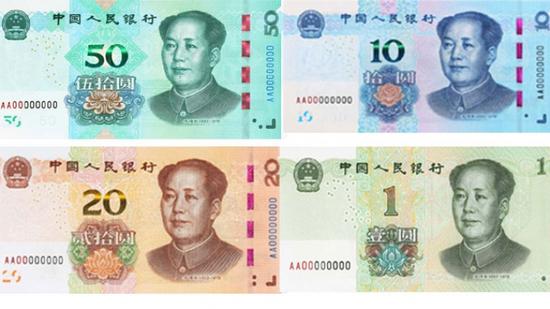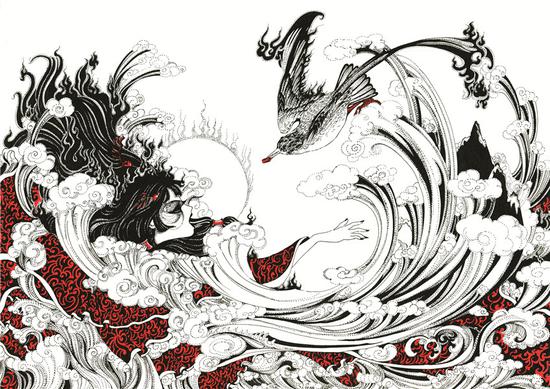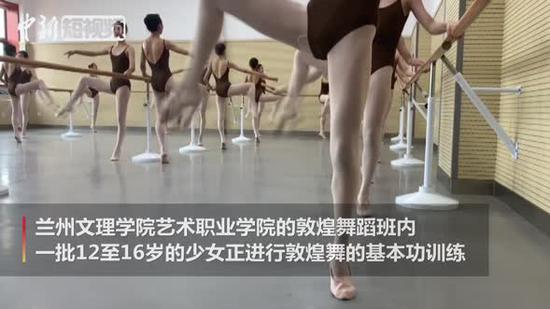
African artists perform a traditional dance at the exhibition area during the first China-Africa Economic and Trade Expo held in Changsha, Hunan province, last month. (Photo by Xu Xing/For China Daily)
Changsha expo makes tangible progress in new bilateral deals and projects
Tangible progress was made in bilateral economic ties and trade cooperation between China and Africa during the first China-Africa Economic and Trade Expo held in Changsha, Hunan province, last month.
Eighty-four deals worth $20.8 billion were inked between China and African countries during the three-day expo, covering a wide range of areas, including trade, investment, infrastructure, agriculture, manufacturing, aviation, tourism and sister city relations.
The expo, themed "Win-Win Cooperation for Closer China-Africa Economic Partnership", attracted more than 6,600 guests and over 3,500 exhibitors, buyers and visitors from home and abroad, including 53 African countries.
Business executives, officials and government officials attending the expo hailed the event as an exchange platform for China and Africa to share information and experiences.
Tarek Amri, vice-president at Sany Heavy Industry Co Ltd and former ambassador of Tunisia in China, said the expo offers good opportunities for both sides to sit together and identify projects for implementation.
Ye Xinping, chairman of Hunan Construction Engineering Group, said the expo is in line with the new trend, new features and new demands for China-Africa economic and trade development in the new era.
"It helps gather more resources to inject new impetus into Sino-African economic and trade cooperation," Ye said. "China and Africa are making efforts to shift the model of economic development, foster new growth drivers and seek new opportunities in cooperation. The two sides will build broader cooperation in areas of mutual interest."
State-owned Hunan Construction Engineering Group mainly focuses on building and installation, road and bridge construction, survey and design, scientific research, equipment manufacturing and real estate development. So far, it has participated in key projects in more than 30 countries and regions globally, covering areas such as roads, housing construction, municipal projects, water projects, electric power and airports.
"Similar to China in the 1980s, Africa is at the initial stages of highspeed development. Thus local governments need to focus on infrastructure and energy construction and address projects closely related to people's lives, such as water, electricity and food," Ye noted. "Actually, those are what Chinese enterprises are good at," he said.
The company has built landmark projects in several African nations, like the iconic wrestling ring in Dakar, Senegal. Covering an area of 18,000 square meters and capable of accommodating some 20,000 spectators, the modern structure was delivered in 2018 after two years of construction. The project created 3,000 jobs for locals and helped train more than 1,000 skilled workers.
"China is serious about further opening up and building stronger economic and trade ties with Africa," said Mark Greeven, professor of strategy and innovation at the Switzerland-based International Institute for Management Development. "While a lot of countries, especially the developed economies, are mainly focused on other parts like Europe and the United States, China seeks opportunities in emerging nations in Africa, something that will help Africa's inclusion in global trade routes."
"There is a lot of potential in African markets, as seen in the entrepreneurial activities of some African countries," Greeven said. "Today, many African nations like Kenya and Ghana are starting to emerge as entrepreneurial hot spots, boasting a lot of economic activities and an emerging group middle class."
Greeven said that for expansion in the African markets, Chinese companies need to better realize and understand the way of doing business in the continent.
"Expos like the one held in Changsha are primarily mechanisms for both sides to set to know each other's practices, habits, needs, expectations and find ways to work together," Greeven said. "It's going to take a while to know each other better. And both sides need to build up an understanding of each other and find ways to do business together."
China has been the largest trading partner of Africa for 10 consecutive years. Last year, trade volume between China and Africa amounted to $204.2 billion, up 20 percent year-on-year, statistics from the Ministry of Commerce showed.
By the end of 2018, more than 3,700 Chinese companies were present in Africa, with combined direct investment over $46 billion.
Yonov Frederick Agah, deputy director-general of the World Trade Organization, said there are many dimensions to the China-Africa partnership with the most important one being multifaceted engagements with an overlapping focus on cooperation.
China is helping economic development in Africa through the infrastructure and technologies it is creating on the continent and the employment, market opportunities that it is helping to generate, he said.
"I believe the China-Africa Economic and Trade Expo is a reminder that the search for mutual credibilities should encourage more cooperation and trust in the global trading system," Agah said.
Charles Kayonga, Rwanda's ambassador to China, said the expo is an excellent opportunity to showcase China's pledge to further open up its markets to Africa and offer a platform for players from Africa to display/sell their made-in-Africa products.
"China has several infrastructure projects in Rwanda and is willing to offer support in this regard. Last July, when China's top leadership visited Rwanda, we signed 15 agreements, and we are continuing to implement them with China's support. We are supporting mineral exploration, and we are working on building mineral processing plants... the future (of China-Rwanda economic relations) is bright," Kayonga said.










